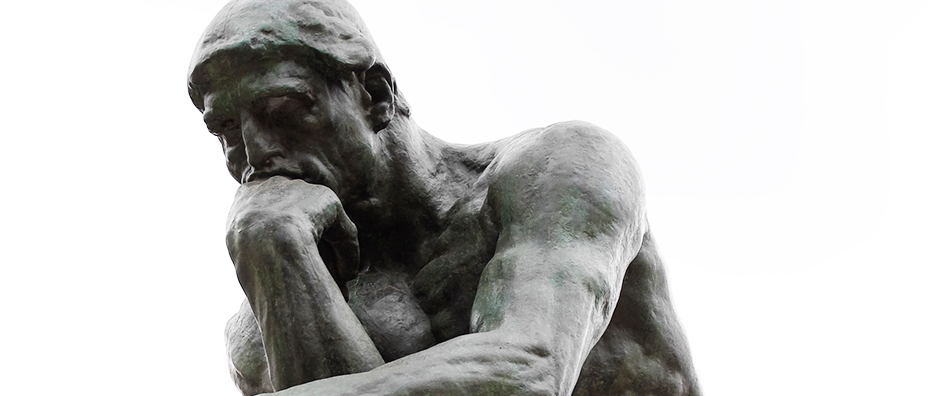In the grand tapestry of Bahá’í philosophy lies the intricate concept of the “Exercised Intelligence of the Rational Soul.” This notion evokes profound admiration for the potential realms of human understanding and spiritual development. Just as an artist meticulously crafts a masterpiece, the rational soul engages with the world through a unique lens—one that harmonizes reason and intuition, intellect and emotion. This exploration beckons us toward a multifaceted understanding of our existences.
At its essence, the rational soul is an entity that transcends mere biological existence. It is a reflection of our higher faculties—a realm where reason wields its power, guiding us through the labyrinth of life. The term “exercised intelligence” invites contemplation of the active process of mental engagement, akin to a muscle that becomes stronger as it is used. In this sense, the rational soul is not static but dynamic; it evolves through experiences, reflections, and the engagement of reason with divine principles.
Envision the rational soul as a luminous beacon, emanating light in the darkest of nights. This illumination represents the inherent wisdom within each individual, urging us to seek deeper truths. Through the exercitation of intelligence, individuals are not mere observers of their environment; they become active participants in their own enlightenment. The interplay between reason and spiritual insight equips humanity with the necessary tools to navigate complexities and paradoxes of existence.
To delve deeper, one must consider the nature of intelligence itself. In Bahá’í thought, intelligence is not relegated to the confines of intellect; it embodies a holistic capacity that encompasses emotional, spiritual, and ethical dimensions. The exerciser of this intelligence resides not just in acquiring knowledge but in fostering understanding. This understanding drives the soul to gravitate toward virtues such as justice, kindness, and unity. It is through this active engagement that human beings begin to realize their interconnectedness.
Moreover, the rational soul becomes a canvas upon which the myriad experiences of life are painted. Each brushstroke—be it joy, sorrow, triumph, or defeat—contributes to the richness of human experience. By exercising one’s intelligence, individuals can analyze their encounters, derive valuable lessons, and cultivate a deeper sense of empathy. This process mirrors the art of dialogue between different perspectives—an essential component of nurturing unity in diversity.
As one navigates the trajectory of life, the rational soul serves as a compass. It channels an innate desire for growth and ascendance. The development of the rational soul parallels the journey of a butterfly emerging from its cocoon—an emblem of metamorphosis. Each stage of this evolution compels the exerciser to confront personal limitations and societal norms, propelling them toward elevated realms of consciousness. It is through such courageous transformations that humanity can collectively aspire toward higher ideals.
Equally crucial is the recognition that the exercized intelligence of the rational soul is not a solitary pursuit. It flourishes within the context of community. The Bahá’í paradigm posits that growth occurs in tandem with others; collaboration and mutual support amplify the effectiveness of individual endeavors. This interplay fosters a nurturing environment where shared wisdom and experiences enrich the individual’s understanding. The collective pursuit of truth echoes the harmony found in a well-orchestrated symphony, where diverse instruments converge to create resplendent melodies.
Furthermore, the concept of exercised intelligence advocates for the unification of science and religion—two seemingly divergent domains. Both realms, when approached through the lenses of the rational soul, reveal a mutual symbiosis rather than conflict. Scientific inquiry endeavors to uncover the workings of the universe, while spiritual exploration seeks to comprehend its significance. The marriage of these pursuits, as envisioned by Bahá’í teaching, culminates in a holistic understanding of existence, fostering a deeper appreciation for the intricate web of life.
In an age marked by rapid technological advancements and shifting paradigms, the relevancy of exercising the intelligence of the rational soul cannot be overstated. The complexities of modernity—characterized by perpetual distractions and information overload—demand a recalibration of focus. Striving for clarity amid chaos is a modern-day challenge that echoes through the ages. The teachings impel individuals to cultivate discernment, guiding them in distinguishing between transient noise and profound truths. Such discernment is pivotal as humanity grapples with choices that resonate beyond the present moment.
Ultimately, the appeal of the exercised intelligence of the rational soul resides in its potential for profound transformation. This profound engagement with one’s inner self paves the way for contributions that elevate society. As individuals undertake the journey toward self-realization, they become beacons of hope and agents of positive change. Each act of moral courage, each endeavor toward understanding, contributes to the collective aspiration for a more just and unified world.
In conclusion, the Bahá’í teachings surrounding the exercised intelligence of the rational soul create an intricate web of insights that resonate deeply within the human experience. Through the continuous interplay of reason, spirituality, and the shared journey of humanity, individuals can unlock the limitless potential embedded in their very being. The quest for understanding exemplifies the essence of existence itself—a pursuit worthy of ardent dedication. Thus, the rational soul stands not only as a testament to our inherent capabilities but also as a poignant reminder of our shared humanity in the quest for truth and unity.
